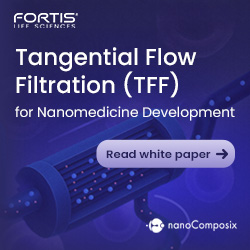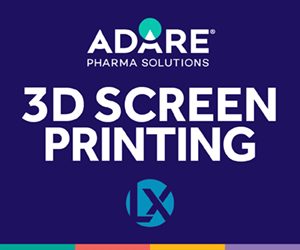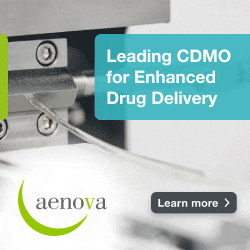New England Journal of Medicine Publishes Results of the PULSAR Phase 2 Trial of Sotatercept in Patients With Pulmonary Arterial Hypertension
Acceleron Pharma Inc. recently announced the New England Journal of Medicine has published results of the PULSAR Phase 2 trial of sotatercept in patients with pulmonary arterial hypertension (PAH).
“We couldn’t be more excited that the editors of the New England Journal of Medicine have selected the results of the PULSAR trial for publication,” said Habib Dable, President and Chief Executive Officer of Acceleron. “With our STELLAR Phase 3 registrational trial of sotatercept now enrolling patients with PAH, having such robust data highlighted in one of the world’s most prestigious peer-reviewed medical journals will help raise awareness of sotatercept’s potential to alter treatment paradigms for this disease of high unmet medical need.”
During a special session of the American Thoracic Society 2020 virtual meeting last June, study investigators reported that patients on stable background PAH-specific therapies treated with sotatercept experienced a statistically significant reduction in pulmonary vascular resistance, the trial’s primary endpoint, at week 24 versus placebo. The trial also achieved an all-dose mean improvement from baseline in the key secondary endpoint of six-minute walk distance.
“The PULSAR data show that sotatercept has the potential to deliver significant benefit on top of currently available therapies,” said Dr. Marc Humbert, Professor of Medicine and Director of the French Pulmonary Hypertension Reference Center at the Université Paris-Saclay and a first author of the New England Journal of Medicine article. “This is a result that suggests that sotatercept could bring an important new mechanistic approach to the treatment of patients with PAH.”
Sotatercept was generally well tolerated in the trial. Adverse events observed in the study were generally consistent with previously published data on sotatercept in clinical trials in other patient populations. In addition to the ongoing STELLAR trial, Acceleron is planning two additional Phase 3 studies in PAH—HYPERION and ZENITH—evaluating sotatercept in newly diagnosed patients and in patients diagnosed with World Health Organization (WHO) functional class IV disease, respectively.
The PULSAR publication marks the third time that trial results of an Acceleron-discovered therapy have been published in the New England Journal of Medicine in the past 15 months. In the first quarter of 2020, the journal published results of the pivotal Phase 3 MEDALIST and BELIEVE trials of REBLOZYL (luspatercept-aamt), an Acceleron-discovered erythroid maturation agent, in populations of patients with myelodysplastic syndromes and beta-thalassemia, respectively.
The PULSAR Phase 2 trial is a randomized, double-blind, placebo-controlled study designed to evaluate the efficacy and safety of sotatercept in patients with PAH. The primary endpoint of the trial was the change from baseline in pulmonary vascular resistance (PVR) over a 24-week treatment period. PVR, as measured by right heart catheterization, is the resistance that the heart must overcome to pump blood through the pulmonary circulatory system. The key secondary endpoint was six-minute walk distance (6MWD); a measure of functional capacity/endurance. Other exploratory analyses included change in amino-terminal brain natriuretic propeptide (NT-proBNP), a hormone secreted by cardiac muscle cells in response to stretching caused by increased blood volume in the heart; mean pulmonary arterial pressure, a hemodynamic measure of average pressure in the main pulmonary arteries, which is elevated in PAH patients; and WHO functional class. A total of 106 patients were randomized in a 3:3:4 ratio to receive placebo, sotatercept 0.3 mg/kg, or sotatercept 0.7 mg/kg subcutaneously every three weeks on top of standard-of-care therapies.
Following the 6-month double-blind treatment period, participants in the trial were eligible to continue in the ongoing open-label extension period of the study. Of the 97 patients initially enrolled in the extension, 91 continue to participate.
Sotatercept is an investigational reverse-remodeling agent designed to be a selective ligand trap for members of the TGF-beta superfamily to rebalance BMPR-II signaling, which is a key molecular driver of PAH. The PULSAR Phase 2 trial evaluating sotatercept in combination with approved PAH-specific medicines in patients with PAH achieved its primary endpoint of improvement in pulmonary vascular resistance and its key secondary endpoint of improvement in 6-minute walk distance. Sotatercept was generally well tolerated in the trial. Adverse events observed in the study were generally consistent with previously published data on sotatercept in other diseases. Following the PULSAR results, sotatercept was granted Breakthrough Therapy designation from the FDA and Priority Medicines designation from the EMA in PAH. Sotatercept is also being evaluated in the SPECTRA Phase 2 exploratory trial.
The company recently presented details of its Phase 3 development plan, including the design for the registrational STELLAR trial, which is currently enrolling patients with PAH. Acceleron is planning two additional Phase 3 studies in patients with PAH: the HYPERION trial in newly diagnosed patients, and the ZENITH trial assessing intervention in patients diagnosed with WHO functional class IV disease.
Sotatercept is an investigational therapy that is not approved for any use in any country. Sotatercept is part of a licensing agreement with Bristol Myers Squibb.
PAH is a rare and chronic, rapidly progressing disorder characterized by the constriction of small pulmonary arteries and elevated blood pressure in the pulmonary circulation. PAH results in significant strain on the heart, often leading to limited physical activity, heart failure, and reduced life expectancy. The 5-year survival rate for patients with PAH is approximately 57%. Available therapies generally act by promoting the dilation of pulmonary vessels without addressing the underlying cause of the disease. As a result, PAH often progresses rapidly for many patients despite standard of care treatment. A growing body of research has implicated imbalances in BMP and TGF-beta signaling as a primary driver of PAH in familial, idiopathic, and acquired forms of the disease.
Acceleron is a biopharmaceutical company dedicated to the discovery, development, and commercialization of therapeutics to treat serious and rare diseases. Acceleron’s leadership in the understanding of TGF-beta superfamily biology and protein engineering generates innovative compounds that engage the body’s ability to regulate cellular growth and repair. Acceleron focuses its research, development, and commercialization efforts in pulmonary and hematologic diseases. In pulmonary, Acceleron is developing sotatercept for the treatment of pulmonary arterial hypertension (PAH), having reported positive topline results of the PULSAR Phase 2 trial. The Company is currently planning multiple Phase 3 trials with the potential to support its long-term vision of establishing sotatercept as a backbone therapy for patients with PAH at all stages of the disease. Acceleron is also investigating the potential of its early-stage pulmonary candidate, ACE-1334, which it plans to advance into a Phase 1b/Phase 2 trial in systemic sclerosis-associated interstitial lung disease (SSc-ILD) this year.
In hematology, REBLOZYL (luspatercept-aamt) is the first and only erythroid maturation agent approved in the United States, Europe, and Canada for the treatment of anemia in certain blood disorders. REBLOZYL is part of a global collaboration partnership with Bristol Myers Squibb. The companies co-promote REBLOZYL in the US and are also developing luspatercept for the treatment of anemia in patient populations of myelodysplastic syndromes, beta-thalassemia, and myelofibrosis. For more information, visit www.acceleronpharma.com.
Total Page Views: 1363














